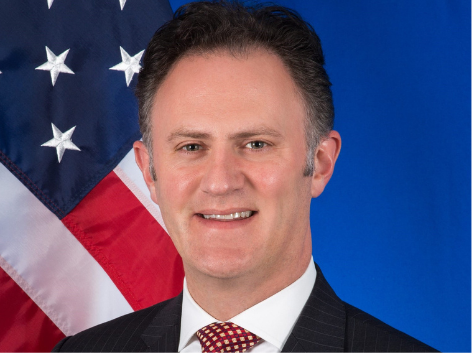Counterterrorism and great-power competition
Counterterrorism still matters, even in an era of great-power competition.
For nearly two decades after the attacks of September 11, 2001, counterterrorism was the United States’ top national security and foreign policy priority. That is no longer the case, as resources and policy maker bandwidth are increasingly shifting to challenges associated with peer and near-peer rivals such as China and Russia. Yet it would be a mistake to conclude that counterterrorism is irrelevant to this dawning era of great-power competition. In fact, counterterrorism efforts can advance the United States’ strategic objectives around the globe: they can cement relationships with existing and potential partners, serve as an “escape valve” to relieve tensions in important bilateral relationships, and impose costs on adversaries.
First, consider partnerships. Counterterrorism is a comparative advantage of the United States. Using a combination of civilian and military assistance, the United States can offer frontline states capabilities that China, Russia, and other rivals cannot approach. And because, unlike its competitors, the United States’ approach to counterterrorism emphasizes the rule of law and human rights, this assistance can reinforce broader reform efforts in recipient countries and make them more resilient to malign influence from authoritarian states. These programs can both consolidate established relationships and build new ones.
Africa is a particularly important theater for US counterterrorism assistance, both because the continent faces a staggering array of terrorist threats and because China sees it as central to its Belt and Road Initiative. In countries like Kenya and Somalia, the United States trains law enforcement to respond to terrorist attacks and collect evidence for use in criminal prosecutions, while in Morocco, Senegal, and other countries, the United States provides training and equipment to boost airport security. Significantly, the United States has the same goal as its African partners: for frontline states to be able to defend themselves on their own and not be perpetually dependent on the United States—in marked contrast to China, whose debt-trap diplomacy creates vassals.
African countries are eager for counterterrorism assistance, and the United States is their security partner of choice. If we don’t help, they will turn to our competitors. This is not to say that working with the United States will prompt these countries to sever all ties with Beijing; many will still find it advantageous to engage China economically, as the United States itself does. But security cooperation with Washington gives them an alternative to embracing Beijing even more tightly, thereby preserving their freedom of action—which, again, is in African countries’ and the United States’ mutual interest.
Second, counterterrorism cooperation can relieve strains that arise in important bilateral relationships. Counterterrorism can function as an “escape valve” of cooperation to mutual advantage during moments of friction on other issues with allies and, to a lesser extent, with competitors as well.
… Counterterrorism efforts can advance the United States’ strategic objectives around the globe: They can cement relationships with existing and potential partners, serve as an “escape valve” to relieve tensions in important bilateral relationships, and impose costs on adversaries.
For example, Philippine President Rodrigo Duterte often has sought greater distance from the United States since he took office in 2016. Yet counterterrorism cooperation between Washington and Manila has helped maintain stability in this strategic relationship, particularly the significant support the United States provided in 2017 to help the Philippine government defeat ISIS fighters who had taken control of Marawi City. Similarly, recent years have seen strain between the United States and Turkey amid the latter’s purchase of Russian S-400 missile systems and other irritants. Yet the two NATO allies have maintained a cooperative relationship on counterterrorism, working together to destroy ISIS’s so-called caliphate in Iraq and Syria and to degrade the Kurdistan Workers’ Party, or PKK, which both countries regard as a terrorist group. (To be sure, the counter-ISIS campaign itself has been a source of some bilateral friction, as Ankara regards Washington’s counterterrorism partner in Syria, the Syrian Democratic Forces, as a branch of the PKK.)
Counterterrorism also could be used to defuse tensions with rivals, much like arms control in the Cold War, although here the record is more mixed. In 2020, following years of disagreement, the United States and Russia worked together to impose the first-ever United Nations sanctions on several ISIS regional affiliates. But this breakthrough has not led to better bilateral counterterrorism cooperation, let alone improved overall relations, because Russia has not been willing to change its malign behavior. An on-again-off-again counterterrorism dialogue with Russia was paused when it failed to produce meaningful reciprocal contributions from Moscow (and when Russia continued to falsely insist that the United States somehow created ISIS). As for China, Washington has quietly declined to revive a similar dialogue amid Beijing’s use of counterterrorism as a pretext to commit genocide against Uyghur Muslims in Xinjiang. For counterterrorism to be a meaningful lubricant, rivals must have a shared understanding of the problem and a willingness to work toward similar goals, and those conditions have proven elusive.
Finally, counterterrorism tools, particularly sanctions, can be used to impose costs on rival states when their actions meet the applicable legal standards. Beyond denying adversaries use of the US and international financial systems and access to resources, terrorism sanctions also carry substantial messaging value. They mark the targets as international pariahs, further reducing some companies’ willingness to do business with them.
The United States’ 2020 designation of the Russian Imperial Movement as a foreign terrorist organization—the first-ever US designation of white supremacist terrorists—had the secondary benefit of drawing attention to a group that has operated on Russian soil seemingly with the Kremlin’s approval and that Moscow has used as a proxy in its ongoing aggression in Ukraine’s Donbas region.
Similarly, there has been a bipartisan consensus in the United States to sanction the Iranian regime for its persistent support of terrorism, from the Reagan administration naming it a state sponsor of terrorism in 1984 to the Clinton administration designating its proxies Hezbollah and Hamas in 1997 to the Trump administration’s sweeping use of terrorism sanctions against Tehran, including its Islamic Revolutionary Guard Corps. Terrorism sanctions may not conclusively stop an adversary’s malign behavior, but they can increase its costs, both economic and reputational.
Terrorism sanctions can also punish states that violate international norms against the use of chemical weapons. North Korea’s use of VX nerve agent to murder Kim Jong-un’s half brother in Malaysia in 2017 led the United States to redesignate it as a state sponsor of terrorism. (Russia’s repeated use of chemical weapons against dissidents abroad likewise has prompted calls for terrorism sanctions.)
The main goal of US counterterrorism efforts is to defeat and degrade the United States’ terrorist enemies. Yet counterterrorism can also advance American geopolitical aims. Hard choices certainly lie ahead for US counterterrorism officials, as they face the merciless logic of scarce resources and competing priorities. Still, national policy makers should keep the counterterrorism toolkit handy, not only because of the need to confront ongoing threats, but because of the indirect foreign policy and national security benefits counterterrorism can offer in an age where strategic competition with rival states is the top concern.
* * *

Ambassador Nathan Sales is a nonresident senior fellow with the Scowcroft Middle East Security Initiative and Middle East Programs at the Atlantic Council. Prior to this, he served at the U.S. Department of State as Under Secretary for Civilian Security, Democracy, and Human Rights (acting). Concurrently, Ambassador Sales served as Ambassador-at-Large and Coordinator for Counterterrorism. He was the principal adviser to the Secretary of State on international counterterrorism matters and led the State Department’s Counterterrorism Bureau. He was also the Special Presidential Envoy to the Global Coalition to Defeat ISIS, leading U.S. relations with the 83-member Coalition and efforts to ensure the lasting defeat of ISIS in the Middle East and around the world. Before joining the State Department, Ambassador Sales was Of Counsel at the law firm Kirkland & Ellis LLP (formerly Bancroft PLLC). Ambassador Sales was also previously the Deputy Assistant Secretary for Policy at the U.S. Department of Homeland Security and served at the Office of Legal Policy at the US Department of Justice.
Generously Supported By

Explore “The future of counterterrorism” series
Engage with our series as we continue forecasting the future of counterterrorism
Learn more about the Middle East Programs
Learn more about Forward Defense

Forward Defense, housed within the Scowcroft Center for Strategy and Security, generates ideas and connects stakeholders in the defense ecosystem to promote an enduring military advantage for the United States, its allies, and partners. Our work identifies the defense strategies, capabilities, and resources the United States needs to deter and, if necessary, prevail in future conflict.
Image: FILE PHOTO: Russian President Vladimir Putin shakes hands with Chinese President Xi Jinping during their meeting on the sidelines of a BRICS summit, in Brasilia, Brazil, November 13, 2019. Sputnik/Ramil Sitdikov/Kremlin via REUTERS ATTENTION EDITORS - THIS IMAGE WAS PROVIDED BY A THIRD PARTY./File Photo